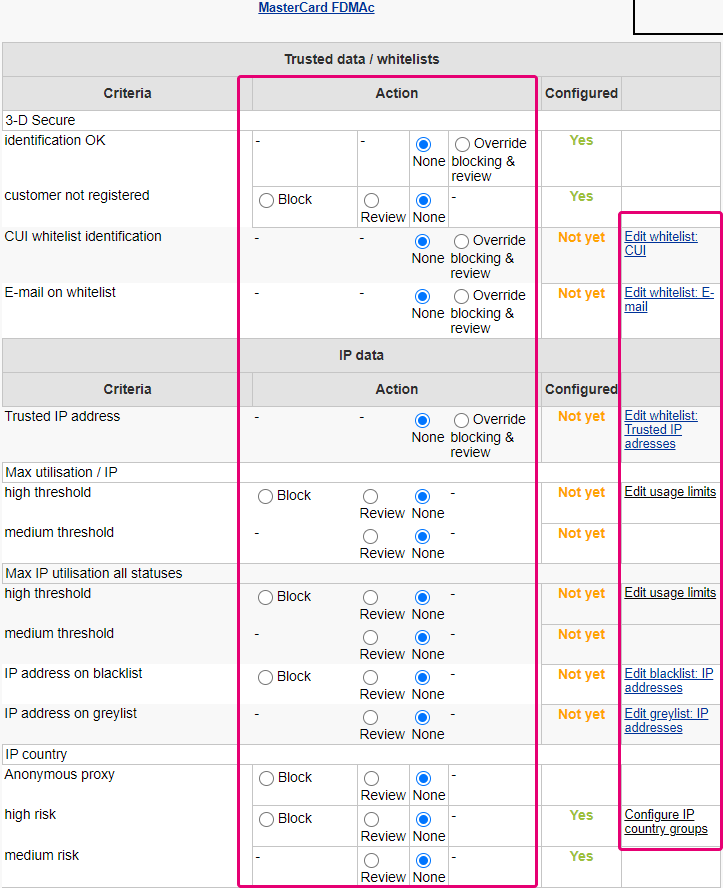Top Suggestions On Picking Credit Card Apps
Wiki Article
What Is Deemed Suspicious Behaviour And Can Result In A Credit Card Being Blacklisted?
Certain actions or behavior could be suspect and result in the credit card to be blocked or flagged. Some examples include: Unusual spending patterns
The suspicion can be caused by purchases of large amounts or sudden increases in spending compared to typical behavior of the cardholder.
Unrecognized Transactions
Fraud is detected through any transaction that is unauthorized or suspicious that appear on the card statement. These transactions are ones that the cardholder was not able to create or approve.
Multiple Refused Transactions
Many failed or declined transactions within a very brief time frame, especially if a cardholder usually has a good track record of transactions, could indicate a possible issue.
Geographic Anomalies
There is a possibility of suspicions being raised if you make multiple purchases in different locations within a short amount of time or are made from a location which is not where you typically spend your money.
Purchase types that aren't normal
Suspicious purchases can be flagged, particularly for expensive items that do not match the spending patterns of the cardholder.
Uncommon Online Behavior
Unusual online behavior, including numerous failed login attempts, a change in account details, or unusual login attempts, could indicate an intrusion that is not authorized.
The use of cards that isn't common
When a card's normal usage pattern is disturbed this could be considered suspicious. For instance, if the local credit card suddenly is used for international transactions.
Unexpected Cash Advances & Transfers
Alerts can be sent if the cardholder makes significant cash advances or transfers that are not in accordance with their usual spending habits.
Frequent Card Not-Present Transactions-
It is possible to flag an increase in transactions that are not present on your card (online purchases or phone-based transactions) with no prior history.
Problems with Identity Verification
Particularly in the case of additional verification, it can be a red flag if you are having difficulty verifying your cardholder's identification in the course of a transaction.
These actions, along with others, may trigger the card issuer's fraudulent detection systems or monitoring mechanisms and prompt them to investigate, and eventually suspend the card for a period of time until the cardholder's identity or the legitimacy of the transaction can be confirmed.

What Does It Signify That My Credit Cards Are Included On A Blacklist?
A credit card placed on a "blacklist" is one that is flagged by its issuer, financial institution, or both due to suspicions of fraud, security issues or other potential risks. There are a variety of reasons why a card may be put on a blacklist.
Card Blocking for Security Reasons If you suspect fraud, your card may be revoked if it is able to detect unusual or suspicious transactions.
Security Risks In the event of indicators of compromise (unauthorized access, data breaches involving card numbers, or irregular spending patterns) the card may be flagged as a security measure.
Identity Verification Issues: If the cardholder is not able to prove their identity, the card can temporarily stop the card. This happens in the event of additional verification requirements.
Lost or Stolen Card- If the card is reported stolen or lost by the cardholder, the issuer may put a stop on the card to prevent unauthorized use until a new card can be issued.
Suspicious Indicators: Any behavior or activity related to the credit card that could raise the possibility of suspicion, for example, numerous declined transactions (or geographical anomalies) or unusual patterns of spending or unusual geographical locations, can trigger the blocking.
If a credit card is placed in a "blacklist", the cardholder could not make use of credit or their card until the issuer has checked the legitimacy of the card or addressed any concerns regarding security or fraud. It is essential that the cardholder contact the card issuer quickly to resolve any issues, confirm transactions and resolve potential security concerns.

Who Is Able To Check Credit Card Numbers Using The Blacklisting Application?
Validating credit card numbers against an approved blacklist or looking for fraud involving credit cards is usually done by authorized personnel within banks or law enforcement agencies or cybersecurity firms. These professionals include: Fraud Analysts- trained individuals in financial institutions who specialize in finding and analyzing fraudulent activity associated with credit cards. They use specific software and tools to find patterns, anomalies and even compromised card details.
Cybersecurity experts are professionals who specialize in the field of cybersecurity. They are certified to detect and track threats such as the theft of credit cards. They are responsible for preventing data breaches and studying data to find indications of compromise.
Law Enforcement officials - Specialized groups, or individuals, within law enforcement agencies, who investigate frauds and financial crimes, including credit card fraud. They can access databases as well as other resources to track down and analyze fraudulent activities.
Compliance officers are experts who ensure that financial institutions adhere strictly to the rules and regulations regarding transactions in the financial sector. They could be accountable for overseeing procedures to detect and report suspicious transactions relating to credit cards.
The access to databases that include credit card blacklists and the authority for validating the credit card number against these lists is strictly controlled. This requires proper legal authorization.
The teams or individuals who are certified utilize specialized tools and protocols, legal procedures and specially designed software to ensure that credit card data isn't in blacklists. They do this by adhering to strict security and privacy regulations. It is best to only trust authorized professionals and organizations when you are concerned about credit card details that might be hacked. Inappropriate attempts at accessing or utilizing blacklists for credit cards could have legal consequences. Have a look at the best savastan for more info.
